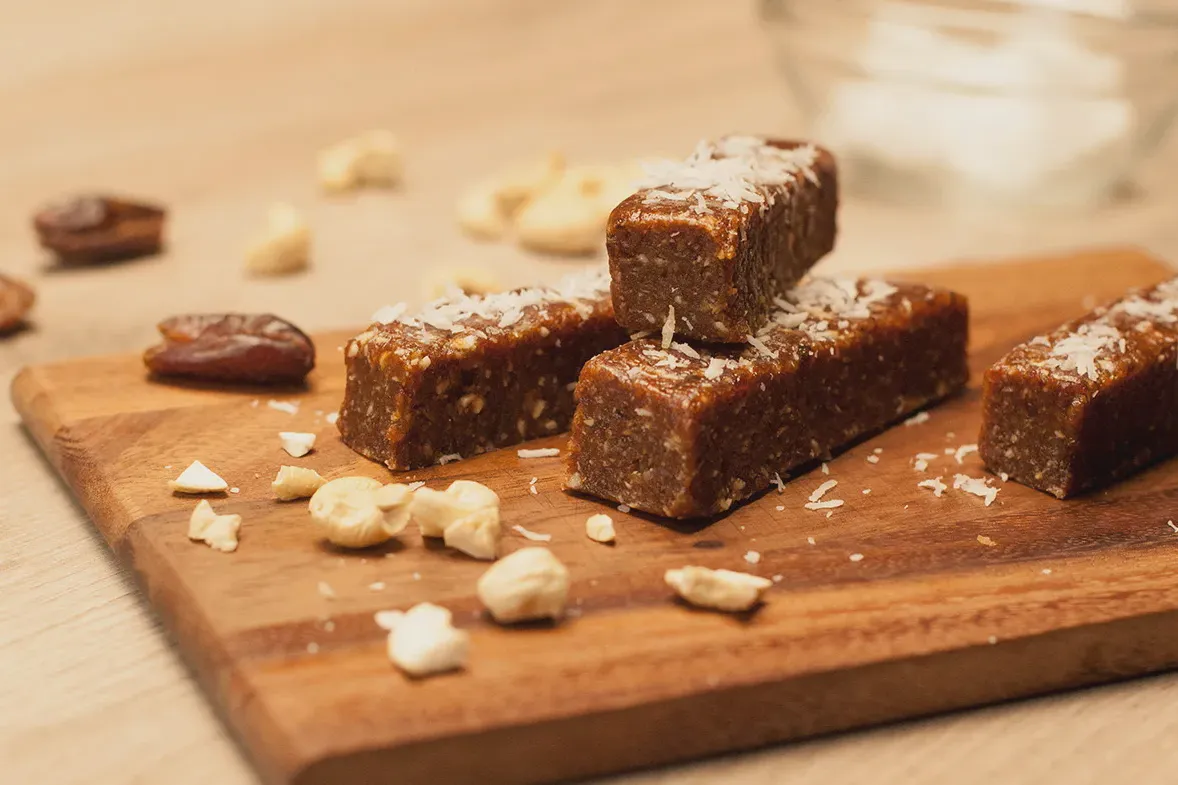A mix of carbs and fats
When you’re riding in a long race, your body needs energy from carbohydrates (like sugars or starches) as well as from fats. Martina Rebull explains that the harder you ride, the more your body needs carbohydrates for energy, and the less it uses fats. So, during a long-stage race like the Škoda Titan Desert Morocco, you will need a mix of both types of fuel. You have to take in enough carbohydrates and healthy fats to keep your energy levels up.
How much should you take in per hour?
Martina suggests eating snacks like energy bars, gels, and drinks that have lots of carbohydrates on the bike. These snacks are easy to digest, carry a lot of sugar and can also contribute to your hydration. If you’re riding for more than two hours, you should eat about 60 grams of carbohydrates per hour. If the stage takes longer than three hours, riders should aim for at least 90 grams per hour. The pros can take in up to 120 grams of carbohydrates per hour during big stage races like the Tour de France!
Healthy fats are also important during a long race. Foods like nuts, peanut butter, tahini, and olive oil can give you the long-release energy you need. Make sure to include these in your meals pre and post stage. You can even look for energy bars with some healthy fats inside. But be aware that fattier snacks take longer to digest, which can slow you down. Add these during lower-intensity parts of the race.

To avoid gastrointestinal problems during the race, it is essential to have a strategy and to have trained your nutrition in the months leading up to the event. Martina encourages anyone who is considering signing up for the race to work with a nutritionist.
Fresh food in a desert
Providing proper nutrition and hydration during a desert race comes with its own set of challenges. Race director Manuel Tajada explains that the catering team must ensure the quality of food and water, meet the nutritional needs of athletes, and offer a varied diet that accommodates diverse tastes. To achieve this, the catering team uses specialised outdoor kitchens and refrigerators to maintain food quality, and buys produce from local markets to make sure it’s as fresh as possible.
Hydration is tricky
Dehydration is a significant concern for athletes participating in desert races. Tajada advises cyclists to diligently watch for signs of dehydration, such as feeling weak, seeing salt marks on their clothes or having a dry mouth. To guarantee the quality of water during the race, all water consumed is bottled, and water used for showers or in the kitchen is treated with chemicals to make it drinkable.
Proper nutrition and hydration strategies are essential for athletes participating in the Titan Desert cycling races. Carbohydrates and healthy fats provide the necessary energy for sustained performance, while taking in enough liquids helps prevent dehydration and its dangerous consequences.



